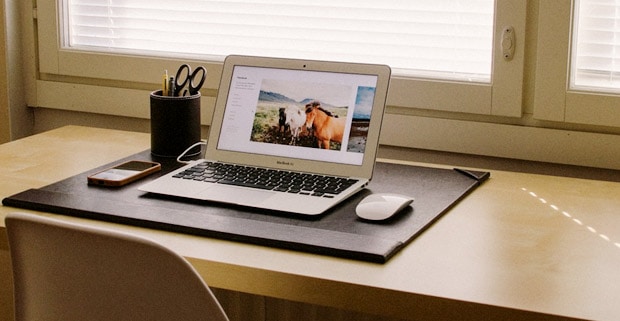Sometimes you need inspiration to keep you going. It’s hard to see the light at the end tunnel when battling through a creative funk, questioning your career path, or just struggling with a work-related project, especially if you’re trying to figure things out on your own.
As a writer, Paul Jun, author of 7 Pieces of Wisdom That Will Change the Way You Work, knows that the creative path isn’t always smooth. From uncertainty to confidence issues to simple writer’s block, there’s a lot to deal with, and sometimes a word of encouragement is needed to keep going.
Building your solid routine helps you focus on what you need to be doing versus what you actually do at the moment.
Here are five pieces of wisdom that Paul has picked up over the years, and which he uses to move forward and thrive as a writer:
1. Study the Work of Other Artists
Paul picked up on this piece of wisdom from Robert Green, author of the book Mastery. In Mastery, Robert notes that studying the work of other artists is an essential building block for improving creativity and mastering a skillset. More importantly, you shouldn’t limit yourself to just studying artists in your field, as this might only re-enforce your pre-existing ideas.
“Learning does not entail the study of one domain but rather a diversity of them,” says Paul.
“This facilities the process of cross-pollinating ideas and concepts, introducing you to new methods and ways of thinking.”
2. Build a Solid Routine
Building your solid routine helps you focus on what you need to be doing versus what you actually do at the moment. Once you’ve built a solid routine and are in your groove, you realize what really matters in your schedule and, as a result, give it your undivided attention. A solid routine actually gives you more time for what you need to complete, as you’ll be less inclined to break the routine to complete a meaningless, ad-hoc task.
3. Keep Things in Perspective
Working in a creative field—especially if you’re a freelancer, contractor, or solopreneur—requires real dedication to what you do. It can be a challenge to reach the levels of creativity you want to achieve, and do so while being profitable, and emotionally fulfilled. It’s for this reason you need to prioritize what’s really important, and to not squander time when looking to meet your goals. Fully commit to your actions, so when you’re debating between pushing through 30 more minutes of work, or stopping to watch that Seinfeld repeat, you know what your only option is. Continue reading









